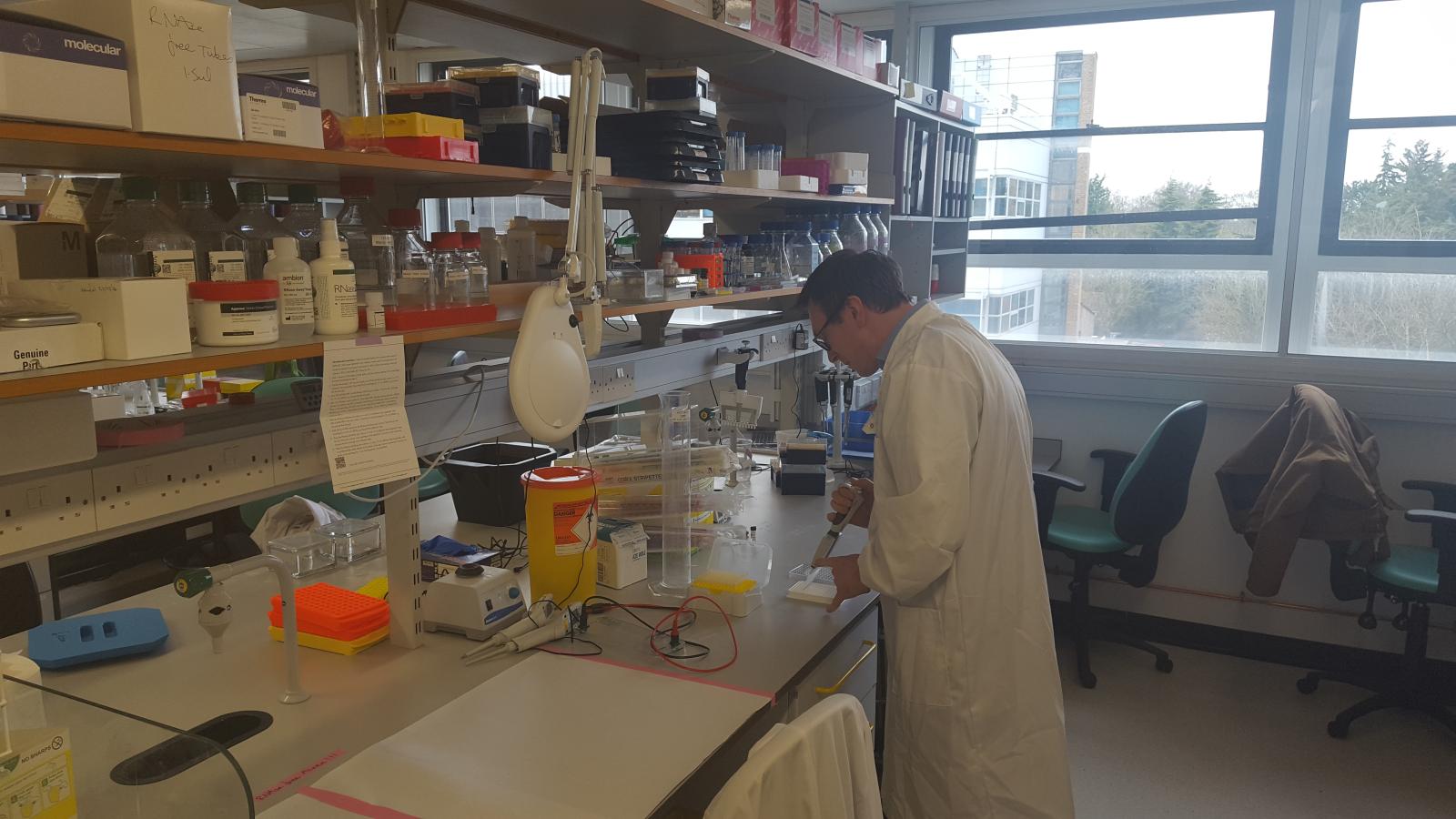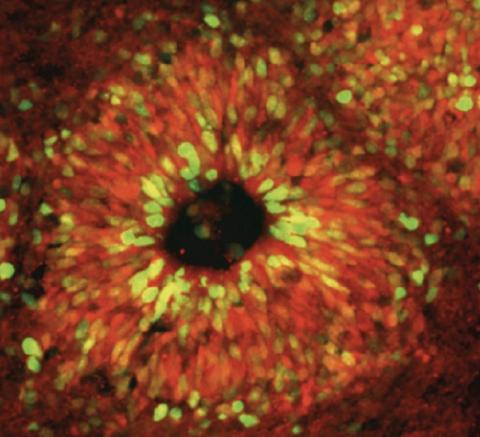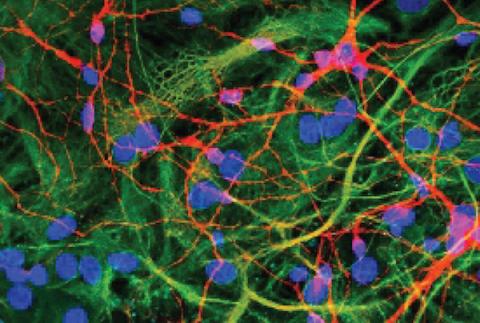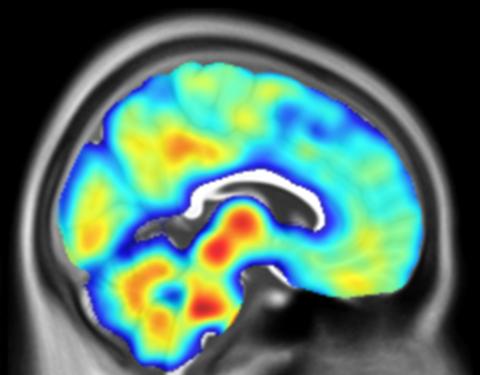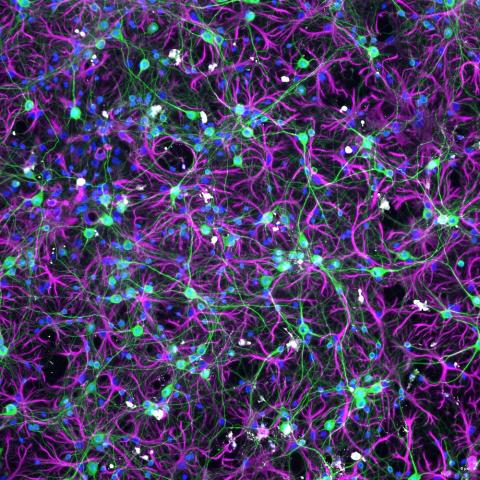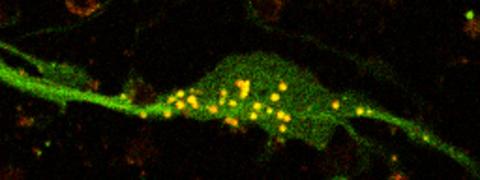The scientific focus of the Centre is on mechanisms underlying the earliest stages of disease from genetic risk factors and transcriptomic responses to disease states, through to mechanisms of protein aggregation and spread, and cellular homeostatic mechanisms. The team at the UK DRI at Cambridge uses interdisciplinary, cutting-edge approaches to advance our understanding of the fundamental mechanisms underlying a range of neurodegenerative disorders in order to deliver new diagnostic approaches and effective treatments.
Research at the UK DRI at Cambridge focuses on common cellular and molecular mechanisms in neurodegeneration, such as DNA repair, protein folding quality control, autophagy and innate immune responses, primarily through analysis of the protein aggregates. These processes have broad relevance across the neurodegenerative diseases from Alzheimer’s, Parkinson’s, the tauopathies, amyotrophic lateral sclerosis (ALS), Huntington’s disease and beyond.
The research programmes at the Centre are highly translational, ranging from biomarker discovery using human tissue, to drug discovery initiatives, experimental medicine studies and clinical trials.
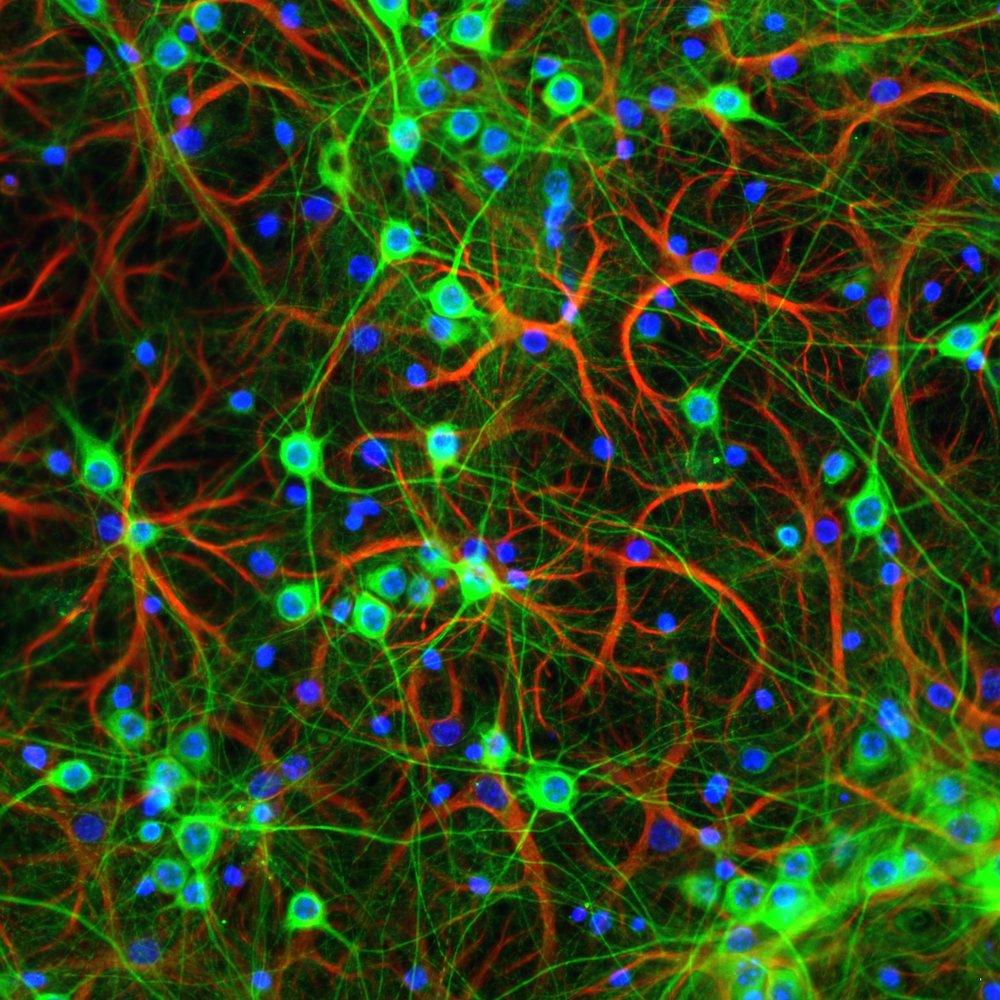
Close up of neurons expressing GFAP and MAP2. Credit: Sophie Sanford
